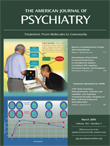Abstract
OBJECTIVE: Despite the clinical observation that antipsychotics can produce negative symptoms, no previous controlled study, to our knowledge, has evaluated this action in healthy subjects. The present study assessed observer-rated and self-rated negative symptoms produced by conventional and second-generation antipsychotics in healthy volunteers. METHOD: The authors used a double-blind, placebo-controlled trial of single doses of haloperidol (5 mg) and risperidone (2.5 mg) in normal subjects. Thirty-two subjects were administered haloperidol, risperidone, and placebo in a random order. Motor variables and observer-rated negative symptoms were assessed after 3–4 hours and subjective negative symptoms and drowsiness after 24 hours. RESULTS: Neither of the active drugs caused significant motor extrapyramidal symptoms after administration. Haloperidol caused significantly more negative signs and symptoms than placebo on the Scale for the Assessment of Negative Symptoms (SANS) and two self-rated negative symptom scales: the Subjective Deficit Syndrome Scale total score and an analog scale that evaluates subjective negative symptoms. Risperidone caused significantly more negative signs and symptoms than placebo on the Brief Psychiatric Rating Scale (BPRS), the SANS, the Subjective Deficit Syndrome Scale total score, and the analog scale for subjective negative symptoms. After control for drowsiness, risperidone but not haloperidol produced more negative symptoms than placebo on the BPRS and the SANS. Significance was lost for the subjective negative symptoms with both drugs. CONCLUSIONS: Single doses of both haloperidol and risperidone produce negative symptoms in normal individuals. Drowsiness may be an important confounding factor in the assessment of negative symptoms in antipsychotic trials.



